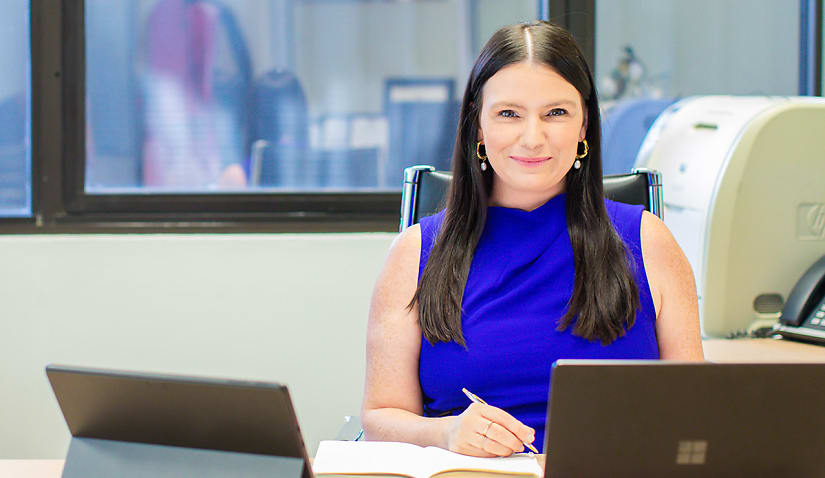This legal academic and law firm owner has created a dual career for herself – and said that, particularly with current advances in technology, she’s now able to provide practical guidance for her students and her clients.

Mary-Ann de Mestre is an academic at Macquarie University and the founder of M de Mestre Lawyers. Speaking recently on The Protégé Podcast, she reflected on how she manages two vocational careers at once and how different areas of each overlap.
M de Mestre Lawyers, which launched this year, is a bit of a “modern take” towards estate planning, according to Ms Mestre – who said her academic experience has been useful in her new venture.
“A more modern approach looks like taking into account blended families and different familial situations and being able to apply different options and different resources to that. So, looking from the basis of an academic and also a practising solicitor to be able to provide an estate planning suite that takes into account the different types of families that we are now encountering,” she said.
“I think having the educational background is a blessing in that it allows me to keep abreast with updated case law and legislation, and that provides me with a competitive edge for my clients to make sure that what I provide is up to date and relevant for what they’re looking for. [And] it amazes me how many students that come across that have never seen a will in the flesh, for example. So, I quite enjoy being able to show them de-identified examples of a will and a power of attorney and a financial agreement. And that gives them a tangible example for us to work through with the content as well as the history.”
Founding a new law firm means Ms de Mestre not only has to wear multiple hats as a business owner but also in juggling being both an academic and a firm owner.
“It can be overwhelming, but I think, provided that you are organised, you run your diary strictly, you take care of time management and take advantage of technology and outsourcing. AI now is such an available tool for everyone. I think it’s important not to be scared of it, to see how we can incorporate it, as well as making sure that you’ve got your team around you with your small business, so that you can outsource tasks to others and form your team as well. As for me, the most important tip is having that to-do list. What are the three most important things that I have to do today that are non-negotiable? And doing that every day has always seen success for me,” she explained.
“I think if it’s the case where you do want to do something different, other than being the traditional lawyer, it’s important to have a look at what’s out there, what options are available. And connect with people [who] are where you want to be and jump in front of them and see if you can have a coffee or have a chat. I have found [that], especially in the legal profession, people are so open-minded and willing to help you. It’s just you have to have the confidence in yourself to get out there and knock on people’s doors and see if you can get that advice and support from them.”
For those looking to go down a similar dual-vocation pathway, Ms de Mestre emphasised that proactivity and time management are both vital.
“The most important thing is being aware of your own capabilities and time management, so how much you can fit into your own schedule and your own day. I think if it’s academia that you’re interested in, as well as practising, being able to write and research and have a love for history goes part and parcel with being an academic and then for being a solicitor, having that client contact, and being able to provide that service to your client is important as well. There are so many opportunities and doors that can open for you if you just look for them,” she said.
“I think educationally and professionally, what I can achieve is providing a practical sense to students and also my clients and being able to show them not to be afraid of technology and the advances that we’re having.
“The advances with technology at the moment are significant, so I definitely think there are so many opportunities and doors that can open for you if you just look for them. So, take a proactive view and start connecting and reaching out to people, and you never know where that might take you.”
The transcript of this podcast episode was slightly edited for publishing purposes. To listen to the full conversation with Mary-Ann de Mestre, click below:

Lauren is the commercial content writer within Momentum Media’s professional services suite, including Lawyers Weekly, Accountants Daily and HR Leader, focusing primarily on commercial and client content, features and ebooks. Prior to joining Lawyers Weekly, she worked as a trade journalist for media and travel industry publications. Born in England, Lauren enjoys trying new bars and restaurants, attending music festivals and travelling.